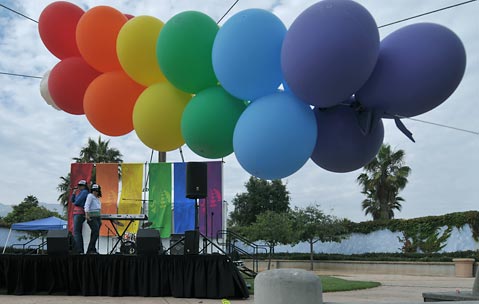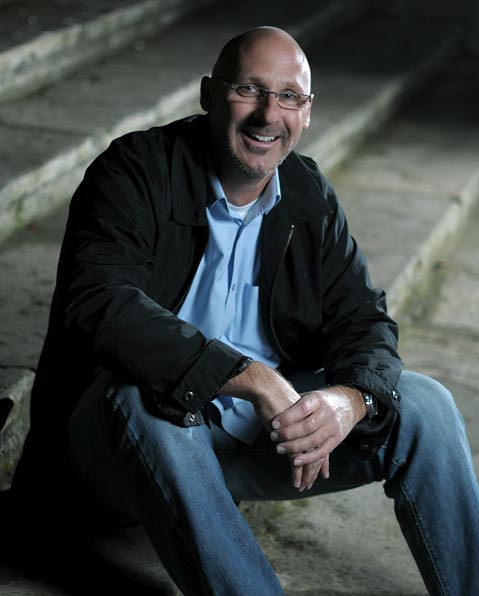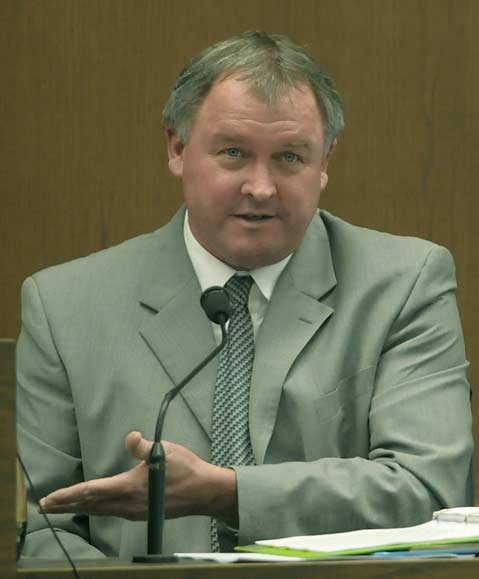
A federal judge in San Francisco ruled today that Proposition 8 — the 2008 voter-approved ballot measure banning same-sex unions in California — violated the federal constitutional rights of gays and lesbians to marry the partners of their choice. U.S. District Chief Judge Vaughn R. Walker issued the decision, writing:
“Proposition 8 fails to advance any rational basis in singling out gay men and lesbians for denial of a marriage license. Indeed, the evidence shows Proposition 8 does nothing more than enshrine in the California Constitution the notion that opposite-sex couples are superior to same-sex couples.
“Because California has no interest in discriminating against gay men and lesbians, and because Proposition 8 prevents California from fulfilling its constitutional obligation to provide marriages on an equal basis,the court concludes that Proposition 8 is unconstitutional.”
The full ruling can be read here.

Not long after the landmark decision was announced, The Independent chatted by phone with David Selberg, executive director of the Pacific Pride Foundation. “The emails and calls we’re getting are full of support,” he said when asked how people have been reacting so far. “Judge Walker did the right thing,” he said. “We’re really pleased that he got it.”
Selberg was quick to note, though, that nothing is etched in stone as an appeal in the works is set to be filed with the U.S. 9th Circuit Court of Appeals. “We’re hopeful, but civil rights is a tough thing sometimes,” he said. “The battle is not over.” Selberg predicted that the appeal is likely to hang in litigation limbo for a couple of years before it eventually makes its way to the U.S. Supreme Court. “But for today,” he said, “it’s a good day. It’s a good moment.”
County Registrar Joe Holland — whose office issues marriage licenses throughout Santa Barbara — explained that Judge Walker included a stay with his ruling that will likely last at least until a hearing scheduled for this Friday. (The stay prevents the resumption of same-sex marriages statewide while the decision makes its way through the appeals process.) During the Friday hearing, Walker can rule to either lift the stay or have it continue, said Holland.

However, because the appeal is now in the jurisdiction of the U.S. 9th Circuit Court of Appeals, that court can choose to issue a stay whenever it wants. In other words, theorized Holland, the 9th Circuit Court could hypothetically choose to issue a stay as early as Thursday, rendering Walker’s Friday hearing moot. Or it could completely keep out of these early stages of the process and allow Walker to make his scheduled ruling at the end of the week. It’s anyone’s guess.
If Walker lifts the stay and the appeals court chooses to stay quiet, gay and lesbian marriages could start happening as soon as Friday. “We just have to wait and see,” said Holland. But Santa Barbara County, he continued, won’t start issuing licenses until it gets its cue from the court to do so. Should that happen, staff are ready. “We did this back in June 2008 and are ready to do it again,” he stated. “The forms are there and there’s no real financial impact on the county. We just have to do it.”
Moving forward, Selberg is already thinking about his side’s tentative plan to put a measure on the state’s 2012 ballot that would once again legalize gay marriage. And he thinks that if it does pass, the Supreme Court will take notice. “If [the appeal] goes before the Supreme Court one day,” he said, “and if [the justices] see that several significant states are overwhelmingly passing the right for gay and lesbian couples to marry, maybe that’ll influence their decision. It shouldn’t,” he went on. “They should exist to do the right thing and protect the rights of minorities, but that isn’t the world we live in.”



